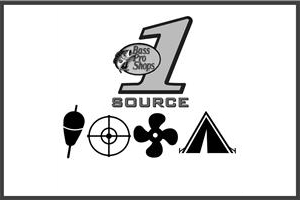
 I’m sitting at home one evening, contemplating whether to go down into the basement into my tackle room -- or as my girlfriend calls it, “a mini Bass Pro Shops” -- to work on tackle management and my annual cleaning of the reels. However, before heading down, I decided to check my emails.
I’m sitting at home one evening, contemplating whether to go down into the basement into my tackle room -- or as my girlfriend calls it, “a mini Bass Pro Shops” -- to work on tackle management and my annual cleaning of the reels. However, before heading down, I decided to check my emails.
I received an email from a young angler who has some experience fishing local club
events and does relatively well in them, but wants to make the step to the bigger, larger
tournament circuits. What should the angler do?
I get asked this question at shows regularly, and I thought that I would write about making the jump to the larger circuits -- as well as answering some of the other questions that I’m
asked about this topic.
The first question during this conversation usually goes something like this: “I have a small boat. Do I need a bigger boat to fish the bigger circuits?”
Well, the answer to that is: It depends on what circuits you are doing.
If you are fishing a circuit like the BASS Opens or the FLW Berkley Series, you’ll be competing in multiple-day events on much larger bodies of water like Lake Erie, Lake Champlain, Potomac River, Santee Cooper Reservoir, the list goes on and on. These bodies of water are large, where you can end up going 10 miles, 20 miles or more to your fishing spot to get away from the traffic.
With larger events, the fields are larger -- anywhere from 150- to 200-boat fields, and along with these larger bodies of water come rougher conditions. Unlike the weekend warriors, tournament anglers do not have the luxury of only fishing on nice, calm, sunny days. You could be out fishing on Lake Erie or Lake Champlain with 4- to 6-foot waves.
So the quickest answer is yes, you will need to a larger boat. Nineteen- to 21-foot boats with 200-plus horsepower motors become the norm for fishing these events.
The other thing that anglers do not factor in when contemplating making the move up is the increase in financial outlay, as well as time away from home. These events are not all within an hour from your home. Therefore, traveling expenses will increase. Lodging, accommodations and fuel for the boat and truck will increase or be incurred as you are now further away from home.
These costs are something else to factor in during your decision process on whether to make the jump to the larger event circuits.
Discussing the financial implications of fishing larger circuits brings me to the topic of buying of excessive tackle. I have seen in the past, and it happens a lot: Anglers
spend a pile of money on tackle that is usually totally unnecessary. Having been a tackle store owner in the past, I have seen anglers that want to fish the larger team events go and spend a lot of money on tackle because they think that is what they need to do.
The key for any angler is to perfect a technique before moving onto another one. What I like to do is when I am out on the water, I will bring specific bait with me, and I will force myself to only use that particular type of bait the entire day.
For example, pitching/flipping, I will bring only my flipping stick and nothing but jigs with me. I will go and flip and pitch all day long so that I can become familiar with what a jig does once it’s in the water, as well as what it feels like when I get a strike. I try to imagine what the jig is doing in the water every time I move it. Then, and only then, once I have figured out what the jig is doing and have a firm understanding, will I try a different technique -- say, a drop shot or throwing a jerkbait.
So to summarize, if you are going purchase new tackle, make sure you become familiar with its applications and effectiveness before going out and spending a pile of money on bait and/or technique that you are not comfortable or confident in throwing.
Happy fishing!
by Peter Larmand
- 3072 views

